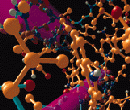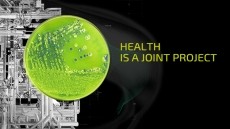CHO technology speeds up productivity
SAFC, a member of the Sigma-Aldrich Group (NASDAQ: SIAL), has launched its first Zinc Finger Nuclease (ZFN)-modified CHO cell lines for use in the production and manufacture of biological drugs.
Meanwhile BD, a segment of BD (Becton, Dickinson and Company), has released a chemically defined (CD) Recharge cell culture media developed using CHO, the productivity of which is “comparable to yeast-based peptones,” according to researchers.
Although the companies’ research has some fundamental differences, both say their new products make protein production more robust with fewer variables and, therefore, more regulatory-friendly.
Bruce Lehr, Director of Cell Sciences and Development at SAFC, said: “The CHOZN cell lines have complete traceability and are expected to enable our customers to bring their therapeutic candidates to market more quickly.
“The cell line is robust, and has regulatory-friendly features that we believe will save them time and money.”
The Madison-based company hopes their innovation will appeal to organizations looking to build a robust and comprehensive therapeutic protein and monoclonal antibody manufacturing platform.
Across the pond UK-based firm BD’s Vice President Robert Hallenback explained how his firm’s new cell culture media offers similar productivity capabilities to peptone supplements.
“BD Recharge provides performance comparable to undefined products, but with greater consistency, which means less risk and lower production costs for biopharmaceutical manufacturers.”
Addationally, according to Hallenback, as BD Recharge is manufactured at the company's dedicated animal-free and antibiotic-free facility, there is less risk of a risk of variability due to the undefined materials involved; a common hurdle when using peptone.
Following a trend
The latest technology follows a succession of similar protein production developments using CHO cell lines.
Only last year Life Technologies announced they had concluded license agreements for rights to its proprietary CHO cell lines for production of recombinant proteins used as therapeutic agents and vaccines.
In May they then joined German contract research organisation (CRO) ProBiogen, and used their CHO know-how to release a range of royalty-free Gibco Freedom Cell Line Development Kits.





